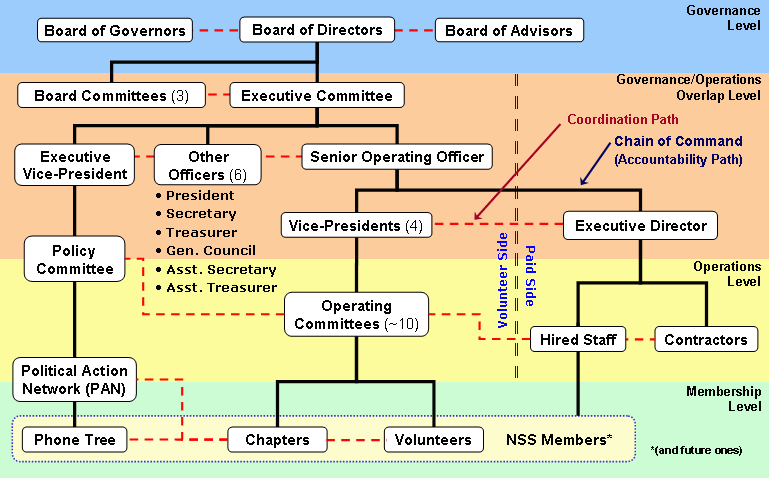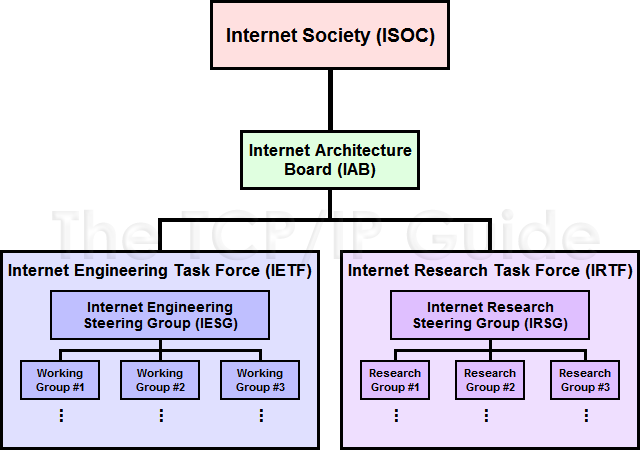Page 9 of 55 - Previous page
OK, can we do one thing well?
02/12/13 22:40:00
I was listening to the State of the Union address on the way home tonight and last nights article on the size of government came to mind. I think I speak for many Americans when I suggest that we get one thing right before we move the Federal Government on to doing everything.
Is there any sphere of human activity that is not regulated in some way by the Federal Government?
Comments
Doing a few things well
02/11/13 20:23:00
Glenn Reynolds writes in today's USA Today about the recent Pew Poll that more than half of Americans see Federal Government as a threat to their freedom. The gist of Glenn's article is:
A government limited to relatively few things – visible things, obviously relevant to the common good – can probably do those things well. As a consequence, it is likely to be trusted and admired. A government that tries to do a lot of things, on the other hand, will probably do them badly and be less highly regarded.
In business, religion, and most other human endeavors there is the generally understood concept of not trying to boil the ocean. Whether its GE's admonition to either be one of the top two in a market segment or don't bother, Goretex and the Hutterites decisions to stick to Dunbar's Number, or the US military's understanding that certain things are beyond even its superpower capabilities, there is a limit to our ability to organize and plan on gigantic scales. And when we go beyond our capabilities the results are usually bad, if not disasterous.
That was part of the genius of the people who founded our country. They knew that trying to run the country we would become was something beyond the capability of men. We would do abuse to ourselves to try.
But try we have. And the result is that for the first time in a long time a majority of us see our Government as a threat to our liberty.
Comments
The National Space Society: organizational inertia and term limits
02/10/13 21:26:00
As the current president of the Georgia Space Society and a National Space Society member I was dismayed to hear that my friend Paul Damphouse resigned as NSS Executive Director and Board member effective February 15th.
What I'm going to say here is in no way meant to disparage any of the volunteers personally or to suggest that anyone is acting in bad faith. But when people like Paul leave after one year, membership is dropping, and financial problems persist year after year, it indicates that something somewhere is badly broken. I have some theories.
Regardless of what one things about organizational methods, organizational charts can tell you a lot about what is viewed as important by the people who run it. Here is the National Space Society's organizational chart:

In this case the Executive Director is three layers removed from the Board, coordinates with 6 vice-presidents, has no direct access to the Executive Vice-President or any of the Operating Committees. As you can imagine the volunteer side is reluctant to give any control or capability to the paid side. Can anyone expect an organization like that to work? It has 20 operating committees (there are even two separate Interent committees: Interent Services Committee and the Web Oversight Committee). For crying out loud, why?
In contrast lets look at an organization that also has 'members', is almost entirely run by volunteers and accomplishes mighty things with this structure. The Internet was designed by a small set of organizations: The Interenet Society, the Internet Architecture Board, the Internet Engineering Steering Group, and the Internet Engineering Task Force. They follow this structure:

Very clean and clear. No leadership outside of the pink box is paid (except for some support staff, IIRC). Everything is done in the IETF and IRTF. There are no dues and membership is completely open to anyone in the world who can join a Working Group mailing list. Sure, politics abound, but they rarely ever affect the organization or the processes. They run conferences three times a year (one is international) and they run like clockwork. And they do it without voting. They hum.
From rumor and legend one of the reasons the National Space Society is structured this way is because of remnants of the National Space Institute and L5 merger that created it. Another is that in such a marginal volunteer run organization you want to reward initiative with responsibility. Anyone willing to do something gets immediately shoved into a leadership role, even if a role doesn't exist. The other may be an inability to implement term limits. In the IETF many roles have term limits. Remove the temptation to reward past service by leaving people in stagnant roles by creating rules that require roles to rejustify themselves every two years.
Can the National Space Society be fixed? Organizational behavior suggests that it won't fix itself without some outside forcing process. It may need professional help. Let's hope it can survive.
Comments
Upcoming space related events in Atlanta
02/09/13 20:28:00
There are a few interesting space related events that are coming up in the next few months in and around Atlanta:
The first meeting of the Georgia Space Soceity will be Febraury 23rd at 4:00 pm at Hypepotamus.
Yuri's Night at Fernbank - April 5th sponsored by the Georgia Tech Planetary Society
Yuri's Night at the Bar - April 12th at a bar in Midtown Atlanta at 6:00 pm. We are tentatively saying Gordin Biersch on Peachtree St.
NASA Space App Challenge - April 20 - 21 - Part of the larger International Space App Challenge, it is a two-day technology development event during which citizens from around the world will work together to address current challenges relevant to both space exploration and social need.
Atlanta Space Startup Night - To Be Scheduled - Get a bunch of people together with business advisors, scientists, students and entrepreneurs and build a space company!
Am I missing anything?
Comments
The coming startup marathon
02/08/13 20:36:00
Gird your loins, Atlanta, there is a tsunami of startup-ishness about to fall upon us in a week. Tech & Startup Week begins February 15th and runs the entire week until the 23rd. Here's the list:
Tech Startup Week Happy Hour - Feb 15
ATDC Entrepreneurs Night - Feb 21
From what I understand the press will be dense and continuous, the politicians will be out and about, and the after parties will be numerous. And yes, the comparisons to Silicon Valley will be infuriating.
For those who are about to pitch, I salute you. For those who will be attendance, keep your criticism true but fair. Sure, the snark is fun but those people up there are trying their best to change the world. That's far more than most living in America today. Celebrate them.
Comments
Art that should exist
02/07/13 18:51:00
I'm a geeky business/engineer type. I look at art and music at a distance. I can't draw or paint. Music baffles me but I love to listen to it. I like art that reflects my personal ethics and aesthetics. I still think the CAD drawings of Masten Space Systems engines should be framed.
Here are some examples of what I like:

|

|
Got any other good examples of art for geeks?
Comments
Startup Rule Number 1: Revenue comes first
02/06/13 23:07:00
Pipefish is my fourth startup. My first real startup was Refactored Networks. The idea there was to take some of the new tools we were buiding for RFID enabled supply chain management and take them down market to small and medium sized businesses. If I'd actually done some customer discovery I would have learned that UPS/Fedex package tracking was all they really needed. One of the other mistakes I made was to assume I could find investors when I needed them. So, after 6 months of developing a prototype with no revenue, I ran out of money.
Revenue should have been my #1 priority. Revenue would have given me the time to learn and pivot. In that particular industry there were tons of consulting opportunities where I could have been paid to learn what my target customers really wanted.
I've had several entrepreneurs at Hypepotamus ask me for advice and second only to “talk to your customers before you do anything” is “find some way to make money on day one”. Revenue is what keeps you free to do the other things your dream needs. With no revenue your options are limited and you begin to panic.
Pipefish has the funding it needs to make significant progress so you might think we should focus on the final product. But you don't learn that way and it means your fate is not your own. Economies go bad. Wars start. People get sick. Shit happens. Revenue is the only shield your startup has to keep that shit from taking everything down with it. So don't put it off.
Step 1: Discover your customers and your business model Step 2: Find revenue to keep your options open Step 3: Iterate until you validate your business model and then execute like hell.
Forget Step 2 and there's a good chance you won't survive long enough to find that valid business model.
Comments
Higher education, jobs, and moral hazards
02/05/13 23:03:00
In yesteday's Wall Street Journal Jane Shaw has an article(sorry about the paywall) discussing recent comments by North Carolina Governor Pat McCrory suggesting there is a disconnect between what is being taught in colleges and what skills are needed for a modern job. The gist of his statements was
Referring specifically to North Carolina's 16-campus state university system, Mr. McCrory wondered if state funding incentives should encourage areas of study that align with the job market. Other disciplines, such as gender studies, Mr. McCrory said, might be subsidized less. The funding formula, he said perhaps a bit indelicately, should not be based on the number of “butts in seats, but how many of those butts can get jobs.”
As expected, the higher education community went ballistic. How dare someone suggest that higher education is about anything more than the pure pursuit of knowledge? But that isn't the question, is it?
Higher education stopped being the pure pursuit of knowledge when the Federal Government assumed the risk by underwriting the loans students use to pay for that education. In economic theory, a moral hazard is a situation where a party will have a tendency to take risks because the costs that could incur will not be felt by the party taking the risk. The economic crisis of 2008 demonstrated a particular class of moral hazards where, even though the party assuming the loan is supposed to be responsible for paying it, the fact that the loan is underwritten by the Government removes any need for the person approving the loan to evaluate the other parties ability to pay. Mortgage agents new they could write just about any loan because ultimately Fanny and Freddie “had their back”. Now we have student loan officers telling students to use subsidized loans to pay for an education with no regard for their ability to pay. There is no impact to the school if the student has no ability to pay. This also means the school is incentivized to push as many students through the system since the quality of the education has no bearing on whether they're paid.
If our country is comfortable with public subsidies for higher education and higher education is OK with taking that money then higher education is going to have to realize that it now has public responsibilities. Those subsidies and guarantees come with strings. The biggest is the requirement that the outcome be aligned with the economic needs of the country. But that's the problem with a moral hazard: incentives are misaligned.
There is little debate that we are in the midst of a higher education bubble. The question is how to deflate it slowly. Pat McCrory is suggesting that we start looking at those incentives and yes, that does mean rewarding rigor and skills over political correctness. Other suggestions include mitigating the moral hazard somewhat by making schools partially responsible for repaying a loan if the student can't, tying the loan rate to degree type, and removing the government from the process entirely. While I personally prefer the last it is unlikely to happen. Tying the rate to the type of degree doesn't work if there is no ability to repay at any interest rate. Putting schools on the hook creates a strong incentive for the loan officer to advise the students more realistically.
Are there other ways of solving this problem?
Comments
Content management does not mean content publication
02/04/13 23:00:00
While I still haven't found a solution to the limitation on redirects within S3, in the process of figuring it out I wrote some code to extract a site from the Wordpress XML export file and create a Middleman app. The idea behind both Middleman and Jekyll is to separate the content management from content publication.
In the process of working with Amazon on the redirect problem I exchanged a few emails with Jeff Barr, Amazon's Chief Evangelist for AWS. His view was:
“The more I think about it, the more I am convinced that the ideal architecture for a blog will have a very clean separation between generating pages and serving them. S3 makes this easy and I can see this model going mainstream before too long!”
Why is this important? Security. Back in 2011 I was managing the webhosting service for Georgia Tech. One of the biggest problems we had to deal with was how inherently insecure PHP is. We were in a constant race with backlink spammers that took advantage of badly maintained Wordpress and Drupal themes to create cloaked link farms. If we could separate creating and maintaining the content from how that content was served we could create a much more secure system.
The trend these days is for much of what used to happen on complex backend systems to now happen inside the browser using robust Javascript systems such as Backbone.js and JQuery. Backends are very slim things that provide access to databases via RESTful APIs that implement very basic business rules. Are we moving to a time when we can secure our websites by moving them to content delivery networks full of static files and very limited and secure APIs? The Jekyll community certainly thinks so.
Given my experience with migrating Rocketforge to that paradigm it's still a bit early. S3 needs some tweaks and Middleman and Jekyll need a better theming system. You could even build a Wordpress plugin that simply puts everything directly into S3 and reserve the Wordpress instance just for authoring content and managing users. This would probably require a new theming system for Wordpress. I'm not sure if Drupal could ever do this.
What do you think? Is Ruby asset pipeline and S3 synchronization something other languages and CMSs use? Can we do a better job of securing the Internet by being deliberate about where we allow code to be executed instead of assuming everything is database-driven and dynamically rendered?
Comments
Stealth vs Hype: strategies for startups
02/03/13 21:08:00
The recent spate of articles(1 and 2) completely missing the point on asteroid mining brings up a problem many startups have regardless of their industry: when and where should you be on the “so stealthy you Mom doesn't even know” vs “buying Super Bowl ads” spectrum?
At Masten Space we started off trying to get as much hype as possible. We were there during the early days of the commercial side of the industry so we had to fight to get anyone to listen to us. Very few understood the business or the opportunity so much of what we talked about was what we could do if we executed technically. Much of what we talked about was what we were actually building. In the industry at that time bending metal was huge and needed to be talked about.
Planetary Resources, on the other hand, was in stealth mode as Arkyd Astronautics for almost two years before it emerged very publicly. PRI could do this because it didn't need funding. There was nothing to be gained by being public. Deep Space Industries, on the other hand, needs to find investors. By hyping the company early there is some hope the company can attract the investors that were (almost literally) throwing money at PRI. PRI has the funding necessary to execute its plan regardless of what mainstream media thinks of the industry. DSI could be doing damage by making claims it can't deliver on to early.
That same set of issues applies to any startup. Pushing a PR plan has to serve some specific business need. If you can build the first version (even if its an MVP) without funding then yea, hyping that up makes sense since you are looking for your initial customers and investors to help you to start executing.
If you can't build anything until you find funding then you are in a very dangerous position. Any PR you do to try and attract investors runs the risk of looking like puffery and vaporware. You may have done all of the customer discovery necessary and have discovered a great business model. But if you can't get it off the ground without large amounts of money then you need to investigate other bootstrapping methods (crowdfunding small steps comes to mind).
So think very carefully about where you want to be on that spectrum. You can do irreparable harm to your brand if you aren't careful.
Comments



